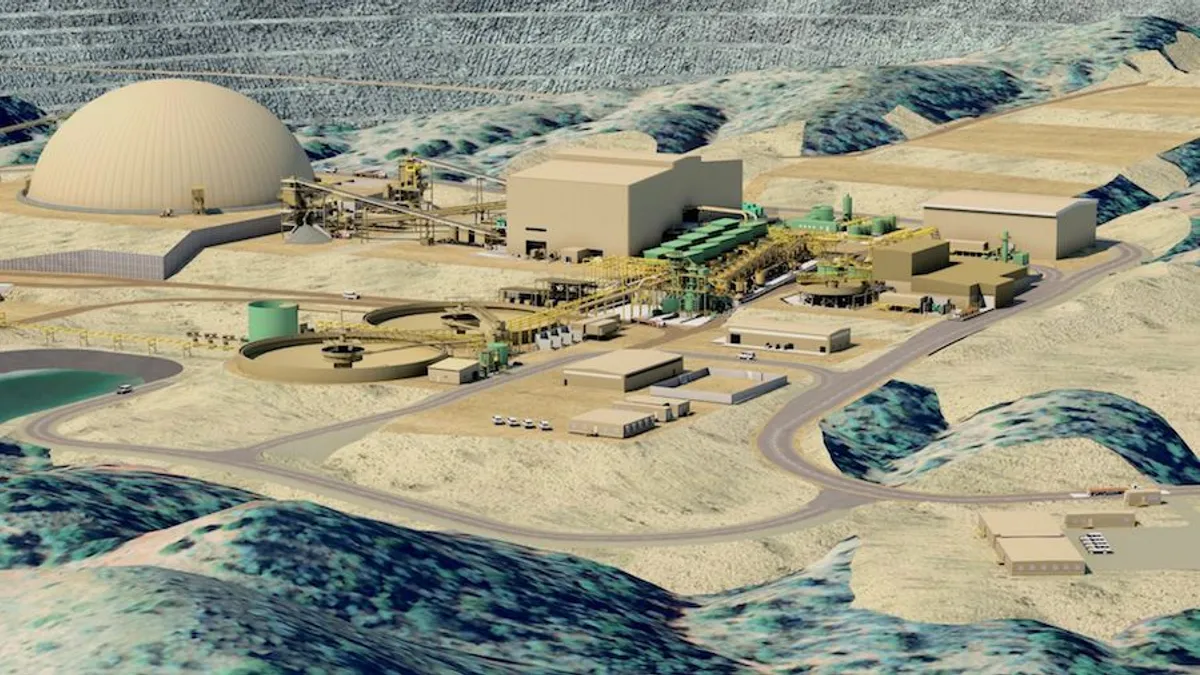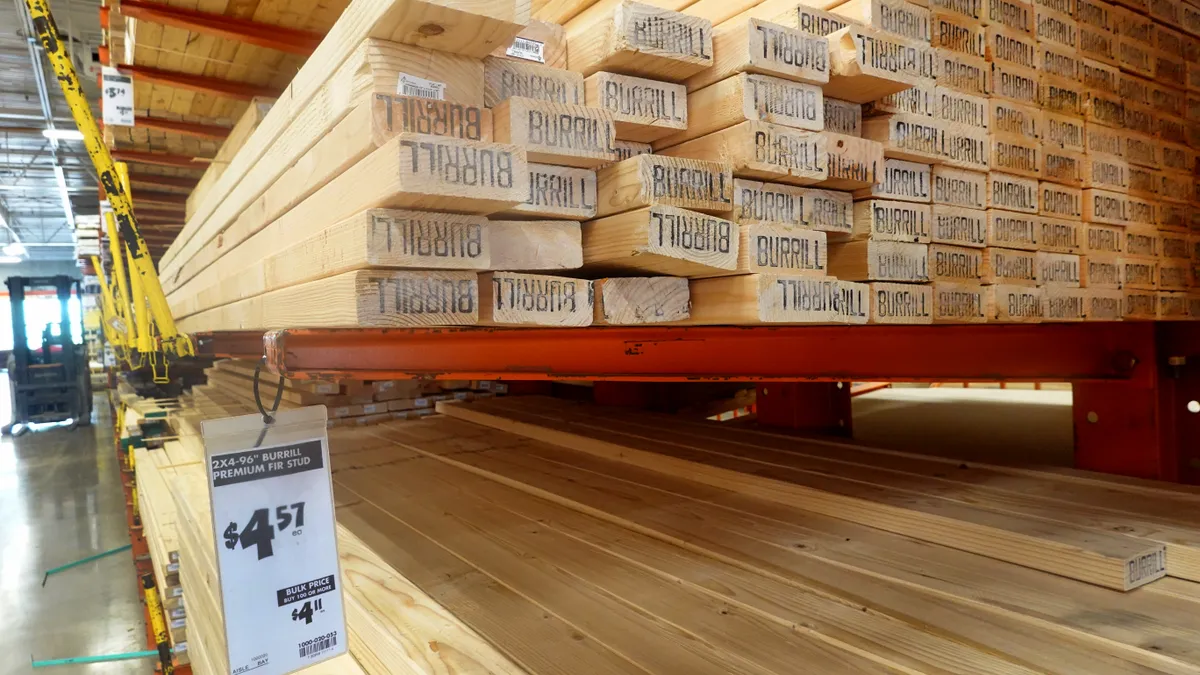Dive Brief:
- Hudbay Minerals, based in Toronto, Canada, announced that it will move forward with $122 million of preconstruction work at its $2 billion Rosemont open-pit copper mine near Tucson, Arizona. The company has also posted job advertisements for a construction manager, site manager, an electrical engineer and other construction-related positions.
- The $122 million will build a water pipeline and power transmission line to the site, which are necessary to start heavy construction; engineering and geotechnical work; archeological site work; and permit-related mitigation activities.
- Hudbay said performing this early work while wrapping up financing at the same time will allow the project to begin construction this year and start operations by the end of 2022. The company estimates that construction will generate approximately 2,500 temporary jobs.
Dive Insight:
Hudbay received two critical permits in March, a water permit from the U.S. Army Corps of Engineers and approval from the U.S. Forest Service for Rosemont’s Mine Plan of Operation. Hudbay said at least one opponent of the project has filed a lawsuit challenging the Army Corps permit but added that it is "confident the permits will continue to be upheld.”
The Environmental Protection Agency has given project critics some ammunition by reporting that the project will likely have negative impacts on the habitats of area wildlife. According to the Arizona Daily Star, the EPA found that the mine will force the loss of five springs and will have a direct impact on another 11. The mine project could also indirectly impact another 60 springs.
Hudbay, according to the Star, disputes many of the EPA’s claims and maintains that the environmental effects of the project will not be as far-reaching as the EPA says they will.
Companies like Hudbay have money and other resources on their side, but that’s not always enough to ensure that a project will go through — especially when it's one perceived to be damaging to the environment.
Dominion Energy’s Atlantic Coast pipeline project, for instance, has been on indefinite hold after courts vacated permits for work that would allow the pipeline to cross the Appalachian Trail, Bloomberg reported. Dominion plans to take its case to the U.S. Supreme Court, but, in the meantime, its costs have risen from $7 billion to $7.5 billion because of the delays.
Also under environmentalists' scrutiny is the $4.6 billion Mountain Valley Pipeline. Just like the Atlantic Coast project, work takes the Mountain Valley through sensitive areas in West Virginia, and activists, as well as the Federal Energy Regulatory Commission, are keeping a close watch on construction in case pipeline crews violate environmental regulations.













